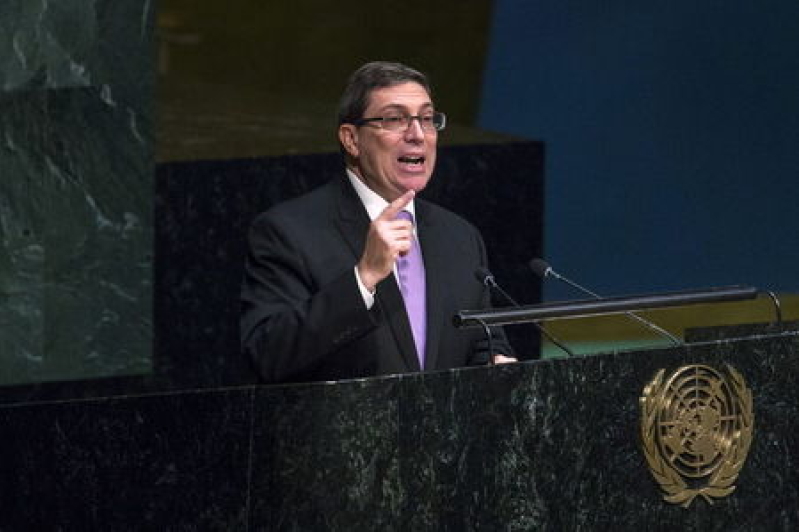
The United Nations General Assembly on Tuesday condemned a U.S. trade embargo on Cuba for the 24th year in a resolution that Washington voted against despite warming ties and a push by President Barack Obama to remove the economic restrictions.
The resolution was adopted by the 193-member General Assembly with 191 votes in favor. Israel joined its ally the United States in voting no. While such resolutions are non-binding, they can carry political weight.
In July, the United States and Cuba restored diplomatic relations after a 54-year break. Obama has taken steps to ease trade and travel restrictions on Cuba, but only the U.S. Congress can lift the full trade embargo.
Obama told the annual gathering of world leaders at the U.N. General Assembly last month he was "confident our Congress will inevitably lift an embargo that should not be in place anymore."
The only change made to the resolution adopted on Tuesday was the addition of language welcoming the renewed ties and recognizing "the expressed will" of Obama to end the embargo.
"The text falls short of reflecting the significant steps that have been taken and the spirit of engagement President Obama has championed," Ronald Godard, U.S. senior advisor for Western Hemisphere affairs, said before the vote.
"If Cuba thinks this exercise will help move things forward in the direction both governments have indicated they wish, it is mistaken," Godard told the General Assembly, adding that the move was "unfortunate."
He said fully normalizing relations will require years of persistence and dedication on both sides.
Cuban President Raul Castro's government, while working to improve ties, has made clear that full normalization will require complete lifting of the embargo and the return of the U.S. naval base at Guantanamo Bay.
Cuba estimates the embargo has caused some $121 billion in damage to its economy.
Cuba's Foreign Minister Bruno Rodriguez told the General Assembly on Tuesday that the embargo is "a flagrant, massive and systematic violation of the human rights of all Cubans."
"We share the hope that the United States moves forward to a change in an inefficient, cruel and unjust policy anchored in the past," he said. "As long as the blockade persists we will continue to present this draft resolution."
When it first passed in 1992, it received 59 yes votes, three votes against and there were 71 countries abstentions. The shift to a near-unanimous vote in favor shows the widespread disapproval of the U.S. embargo on Cuba.
(Reporting by Michelle Nichols; Editing by Chizu Nomiyama)






